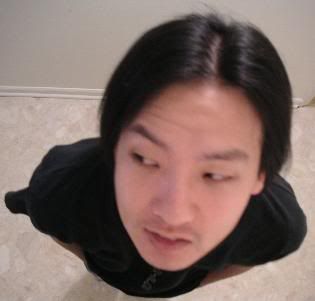Oh married girl, she rocks the cradle and cries
Daniel Handler: We move to "The One You Really Love" in which you and LD are a sort of traveling yodelling cowpoke duo.
Stephin Merritt: We're the Carter Family. I borrowed Brian Dewan's autoharp for several of the songs, chiefly this one, to be more like the Carter Family...
The most influential outfit for both country and bluegrass music, the Carter Family has a wide-ranging legacy that has inspired many folk and rock artists, too. The trio of A. P. Carter, his wife Sara, and his sister-in-law Maybelle formed the original incarnation of the Carter Family back in 1926, although A. P. and Sara had been performing together for years. The Carter Family songbook (including staples "Will the Circle Be Unbroken" and "Wildwood Flower") was mostly assembled from tunes and lyrics that A. P. had gathered throughout Appalachia, and in a shrewd move, he even obtained copyrights for his arrangements of those songs. Sara would sing and play the autoharp, A. P. would also sing, and Maybelle would play the guitar; Maybelle's style, which involved picking bass notes while strumming treble chords, with the familiar "BOOM chick-uh BOOM chick-uh" rhythm, was often imitated.
"Single Girl, Married Girl" was recorded in Bristol, Tennessee back in 1927, as part of the first ever recording session for the band. The group's popularity grew, despite the Great Depression, with recording contracts with Victor, ARC, and Decca Records, in that order. They were aided by certain radio stations that were located in Mexico, just across the border; unhindered by American broadcasting laws, they transmitted Carter Family songs with ridiculously high wattages, allowing them to be heard across the Midwest and beyond. Three of their songs, including the two tracks featured this week, enjoyed new life on the essential Smithsonian/Folkways Anthology of American Folk Music compiled by Harry Smith in 1952 and re-issued on CD in 1997. This compilation was cited on the list and was mentioned by Merritt as being a representative musical document of the 20th century, in addition to "any Carter Family compilation."
Legend has it that A. P. met Sara for the first time when she was on her porch, playing the autoharp and singing the song "Engine 143," a grim ballad about an overzealous engineer who didn't understand the concept of "work/life balance." Though "The One You Really Love" channels Merritt's appreciation for the Carter Family the most, their influence can be felt indirectly on the country music/railroad obsessed album The Charm of the Highway Strip and tracks like "Tar-Heel Boy" and the Susan-sings version of "Plant White Roses."
The Carter Family - "Single Girl, Married Girl"
The Carter Family - "Engine 143"
Stephin Merritt: We're the Carter Family. I borrowed Brian Dewan's autoharp for several of the songs, chiefly this one, to be more like the Carter Family...
The most influential outfit for both country and bluegrass music, the Carter Family has a wide-ranging legacy that has inspired many folk and rock artists, too. The trio of A. P. Carter, his wife Sara, and his sister-in-law Maybelle formed the original incarnation of the Carter Family back in 1926, although A. P. and Sara had been performing together for years. The Carter Family songbook (including staples "Will the Circle Be Unbroken" and "Wildwood Flower") was mostly assembled from tunes and lyrics that A. P. had gathered throughout Appalachia, and in a shrewd move, he even obtained copyrights for his arrangements of those songs. Sara would sing and play the autoharp, A. P. would also sing, and Maybelle would play the guitar; Maybelle's style, which involved picking bass notes while strumming treble chords, with the familiar "BOOM chick-uh BOOM chick-uh" rhythm, was often imitated.
"Single Girl, Married Girl" was recorded in Bristol, Tennessee back in 1927, as part of the first ever recording session for the band. The group's popularity grew, despite the Great Depression, with recording contracts with Victor, ARC, and Decca Records, in that order. They were aided by certain radio stations that were located in Mexico, just across the border; unhindered by American broadcasting laws, they transmitted Carter Family songs with ridiculously high wattages, allowing them to be heard across the Midwest and beyond. Three of their songs, including the two tracks featured this week, enjoyed new life on the essential Smithsonian/Folkways Anthology of American Folk Music compiled by Harry Smith in 1952 and re-issued on CD in 1997. This compilation was cited on the list and was mentioned by Merritt as being a representative musical document of the 20th century, in addition to "any Carter Family compilation."
Legend has it that A. P. met Sara for the first time when she was on her porch, playing the autoharp and singing the song "Engine 143," a grim ballad about an overzealous engineer who didn't understand the concept of "work/life balance." Though "The One You Really Love" channels Merritt's appreciation for the Carter Family the most, their influence can be felt indirectly on the country music/railroad obsessed album The Charm of the Highway Strip and tracks like "Tar-Heel Boy" and the Susan-sings version of "Plant White Roses."
The Carter Family - "Engine 143"


4 Comments:
what delicious kismet. i was just reading about the carter family today. hoorah!
love this blog. always looking forward to the latest update. my wife will call me at work on a tuesday and ask what this week's entry is and i bring them home for us and we sit and we listen.
Thanks! I'm glad you enjoy it!
Hey, this is exciting! I saw a PBS show on the Carter family the other night (Tuesday?). I hadn't heard of them before, but I got really excited.
Post a Comment
<< Home